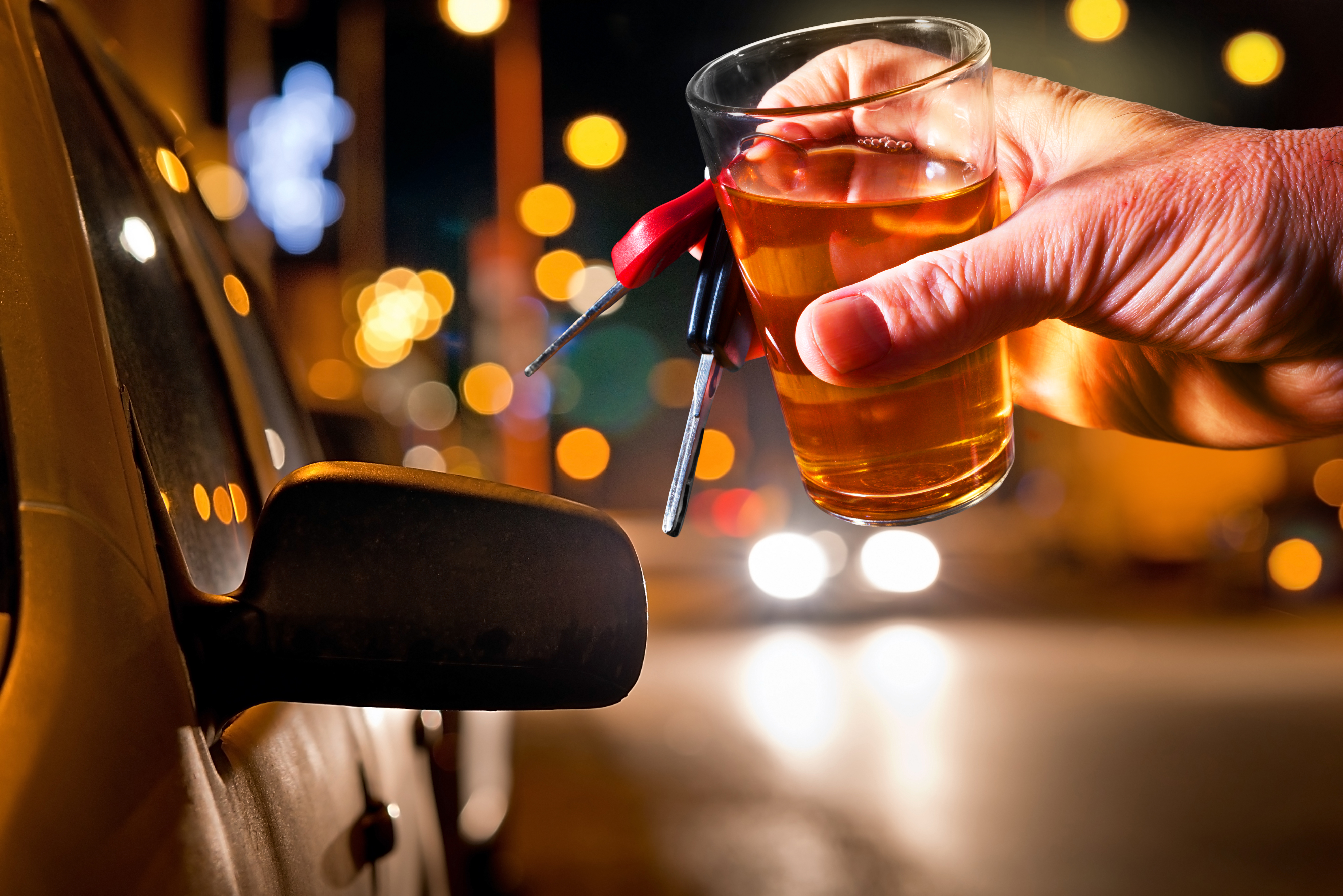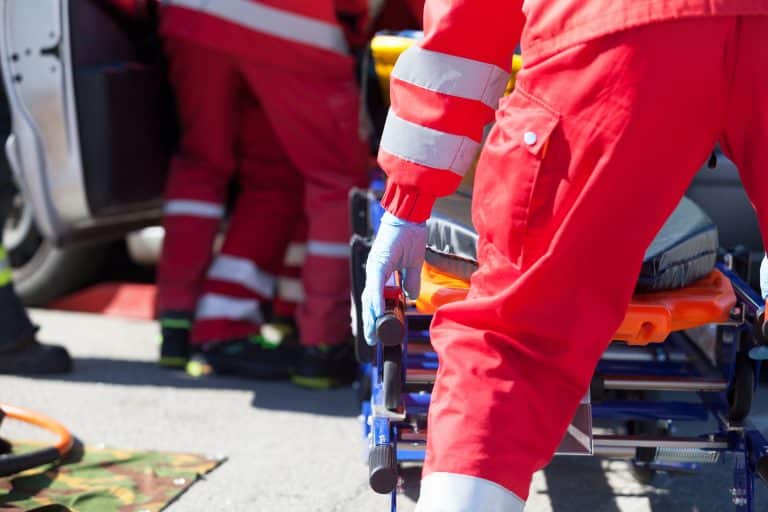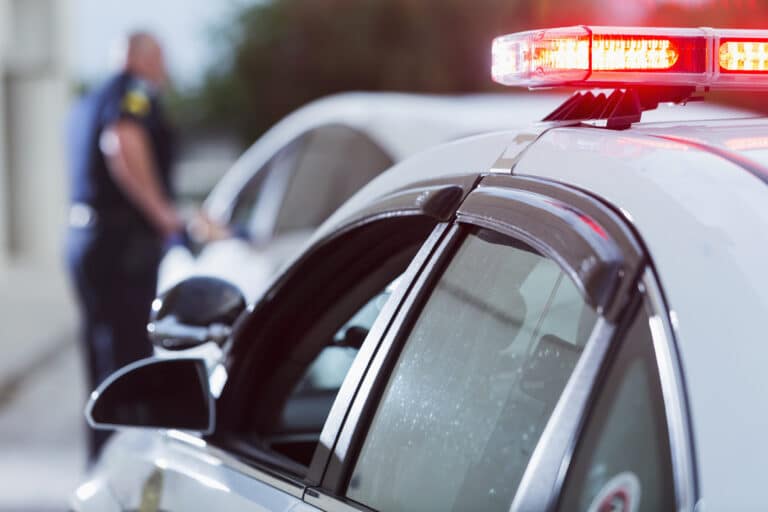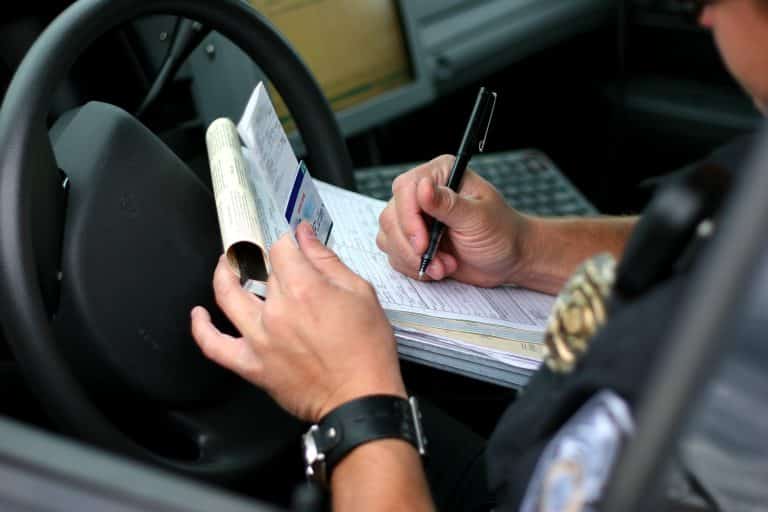There may be a lot going through your mind when you are pulled over for drunk driving. You may feel you are truly fine to drive, or you may be regretting your decision to get behind the wheel. Perhaps you are worried about how family members might react or how your insurance rates might be affected if found guilty.
Even worse, the procedures that an officer will follow during a DWI arrest are lengthy and, for those being charged, can be confusing and frightening. The following walk-through of the DWI arrest process, along with critical advice for those being charged, should be helpful if you find yourself in this situation.
The Traffic Stop
The first step in a DWI arrest is the traffic stop. An officer can only pull over a vehicle if he or she witnesses a traffic violation or driving behavior characteristic of intoxication, such as the inability to stay in a lane.
Contrary to popular belief, not all officers are trained in using breathalyzers and performing roadside sobriety tests. The proper procedure for most officers, especially the NYPD, is to contact the local highway patrol. Highway patrol will send an officer who is trained in sobriety testing to the scene.
Traffic Stop Dos and Don’ts
DO: Comply with all officer instructions. Even if you know you are not intoxicated, you have to follow the process. You have to comply even if you feel the stop is unjustified. If you don’t, you can be charged with resisting arrest.
DO: Call an attorney. If it’s late at night (many DWI stops happen after midnight) leave a message for one to call you back. A conviction can cost you more than $10,000 plus jail time and a suspended license so you will want legal help with this matter.
DON’T: Refuse the breathalyzer or roadside sobriety test. Refusing can result in your license being suspended even if you are never charged or convicted for DWI.
OPTIONAL: You can record your encounter with the police. Every officer nowadays knows that they can be recorded at any time. Besides, nearly all officers have body cams on while on duty (and they get reprimanded if it’s not on). So it’s okay if you want to record something for your own benefit.
CRITICAL NOTE: You don’t necessarily even need to start the engine of your car to be charged with DWI. If you leave a bar, get in your car and sit in the driver’s seat, an officer can reasonably presume that you were going to drive.
At the Police Station
If the officer handling the traffic stop decides to arrest you, you will be taken to the designated highway patrol station house for DWI testing. Here, officers can conduct a full and comprehensive sobriety test. Cameras will record everything for use in court if needed. If the test shows your blood-alcohol level is above 0.08%, you are going to be processed and will go before a judge.
Police Station Dos and Don’ts
DO: Cooperate with all police instructions. This is worth repeating. Belligerence and resistance will only make you look more guilty.
DON’T: Say too much. Anything you say is going to be used against you. That includes small talk. The officer doesn’t want to be your friend right now and doesn’t care who you know.
OPTIONAL: You can ask for the test to be repeated. Officers almost always do it twice anyway.
CRITICAL NOTE: Time is on your side here. Unless highway patrol is nearby and not busy, you can expect to wait an hour or two for them to arrive. The roadside test and the full exam at the station all take time. So if you were just over the 0.08% limit at the time of the traffic stop, you could test below that at the station. An officer cannot make presumptions regarding your BAC—whatever your test shows is what is used in court.
Processing and Plea
In the event that your BAC is found to be under 0.08%, then you will be free to go. Otherwise, you will be processed, which means being fingerprinted and having your information written down alongside details of the charge.
At that point, you will be placed in a holding cell until you can be brought before a judge. This appearance is not your trial. The judge is not here to listen to evidence or arguments. All that is being confirmed is your identity, the charge(s), and how you plead. If you plead not guilty—and you always should—then you will be issued a court date.
This should take a matter of hours, but depending on when you were arrested and how backed up the courts are, it could mean an overnight stay. Even so, it is rarely more than 24 hours.
Processing and Plea Dos and Don’ts
DON’T: Say anything unless asked. Even then answer the questions directly and concisely.
DO: Plead not guilty. Although police are thorough about ensuring a person is intoxicated before charging them, you are still entitled to your day in court. Take it!
DO: For now, if you don’t have an attorney at that moment, use the public defender. Ultimately, you can hire a private attorney later for your official court date.
DO: Be respectful to everyone at the courthouse. Your demeanor represents who you are. The judge doesn’t know you and can only judge you based on your behavior. Rudeness will not help you.
DON’T: Attempt to explain anything. For the most part, the only thing the judge wants to know is how you want to plead. This is not the time to accuse the police of possible misconduct or enter evidence. That comes later and should be done with proper legal counsel.
Being Released
After you enter a plea, you will be released. Given the amount of time this process typically takes, most people are fully sober and can drive themselves home. Many years ago, a person charged with DWI would have his or her car impounded. Nowadays, the car is simply taken to the police precinct. If you are not the registered owner of the vehicle, that person will have been called to come to get the car. If you are the registered owner, you can pick it up after the court date is issued.
Being Released Dos and Don’ts
DO: Consider calling someone to pick you up. Even if you are fully sober, you may be tired and stressed, which can affect your driving skills. Many people choose to pick up their car the next day and that’s perfectly alright.
DO: If you haven’t done so yet, call an attorney. You could use the public defender, of course, but a private attorney will be able to give your case a lot more time and attention.
DON’T: Post anything on social media about your arrest. Anything you share can be used against you in court, especially if it seems to acknowledge that you drove drunk. If you took photos or videos of your interaction with police, ask your attorney before making them public.
Trial or Plea Bargain
At this point, you will need to prepare for your trial or to negotiate with the prosecutor to reduce the charge. There’s no further advice that I can offer other than to hire the best possible attorney you can find and listen to him or her.
DWI Arrest After an Accident
Many times a person is charged with DWI at the scene of an accident. This is a much more serious situation and can mean additional charges on top of DWI, such as reckless driving, reckless endangerment, or vehicular manslaughter.
In addition, many aspects of the arrest process are different than those mentioned above. For example:
- If you are hurt, you may be taken to the hospital directly from the scene.
- Police will take a statement from you either at the scene or in the hospital.
- While in the hospital, police may obtain a warrant to have your blood tested for the presence of alcohol (since you could sober up while being treated).
- If you are taken to the hospital, police will almost certainly wait until doctors release you before arresting you.
- Your car may be taken and inventoried, which may make the process of getting it back more complicated.
Being arrested for DWI is unpleasant under the best of circumstances. By following this advice, you can minimize the difficulty of the ordeal and, hopefully, put yourself in a better position to defend yourself against the charge.





